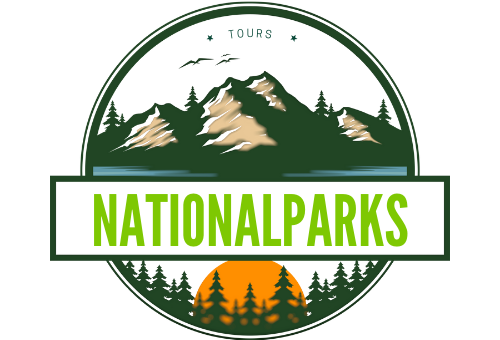Zion National Park’s name originates from biblical roots and Mormon pioneer influence. Isaac Behunin, an early settler, named the canyon “Zion” in 1863, inspired by its spiritual beauty. Initially called “Mukuntuweap” by John Wesley Powell, the name changed to Zion National Monument in 1918 and became Zion National Park in 1919, reflecting the local community’s preference and cultural significance.
What Is the Biblical Significance of the Name “Zion”?

The name “Zion” carries deep biblical significance, which played a crucial role in its adoption for the national park. Here are key points about its biblical meaning:
- In the Bible, “Zion” refers to Mount Zion in ancient Israel
- It symbolizes a place of peace, refuge, and worship
- For Mormon pioneers, “Zion” represented:
- The Kingdom of Heaven
- A sanctuary
- A happy, peaceful place
This biblical context provided a powerful foundation for naming the area, resonating with the spiritual beliefs of the early settlers.
Who Were the Key Figures in Naming Zion?

Several individuals played significant roles in the naming process of Zion National Park:
- Isaac Behunin
- One of the first Mormon settlers in the area
- Credited with naming the canyon “Zion” in 1863
- Settled near what is now Zion Lodge
-
Described the area as a natural temple for worshipping God
-
John Wesley Powell
- Named the area “Mukuntuweap” in 1872
-
Believed it to be the Paiute name for the area, meaning “straight canyon”
-
Horace Albright
- Acting director of the National Park Service in 1918
-
Proposed changing the name to Zion National Monument
-
President William Howard Taft
- Proclaimed the area as Mukuntuweap National Monument in 1909
These individuals, each in their own way, contributed to the evolution of the park’s name over time.
What Was the Historical Context of Zion’s Naming?
The naming of Zion occurred against a backdrop of Mormon settlement and exploration of the American West:
- Late 1800s: Mormon pioneers began settling in the area
- 1863: Isaac Behunin names the canyon “Zion”
- 1872: John Wesley Powell names it “Mukuntuweap”
- 1909: Area proclaimed as Mukuntuweap National Monument
- 1918: Name changed to Zion National Monument
- 1919: United States Congress designates it as Zion National Park
This timeline illustrates the gradual evolution of the park’s name, reflecting changing cultural and political influences.
How Did the Local Community Influence the Name?
The local Mormon community played a crucial role in establishing and maintaining the name “Zion”:
- Preferred “Zion” over “Mukuntuweap”
- Found “Zion” more appealing and easier to pronounce for visitors
- Viewed “Zion” as a cultural and spiritual identifier
- Overcame initial resistance from Brigham Young, who preferred not to use “Zion” for a worldly location
The community’s persistence ultimately led to the official adoption of the name “Zion” for the national park.
What Other Names Were Considered for the Park?
While “Zion” eventually became the official name, other names were considered or used during the park’s history:
| Name | Year Proposed/Used | Proposed By | Reason |
|---|---|---|---|
| Mukuntuweap | 1872 | John Wesley Powell | Believed to be the Paiute name for the area |
| Mukuntuweap National Monument | 1909 | President William Howard Taft | Official designation |
| Zion National Monument | 1918 | Horace Albright | To reflect local preference |
| Zion National Park | 1919 | United States Congress | Final official designation |
This table shows the progression of names considered for the area, culminating in the current name of Zion National Park.
How Does the Name “Zion” Reflect the Park’s Features?
The name “Zion” aligns closely with the park’s natural features and visitor experience:
- Evokes a sense of awe and reverence among visitors
- Reflects the spiritual and natural beauty of the area
- Inspires names of landmarks within the park:
- Court of the Patriarchs
- Angels Landing
- Temple of Sinawava
These names continue the “Zion” theme, emphasizing the park’s majestic and sacred atmosphere.
What Impact Has the Name Had on Visitor Experience?
The name “Zion” has significantly influenced the visitor experience at the park:
- Creates expectations of a spiritually uplifting environment
- Enhances the sense of wonder at the natural beauty
- Aligns with Isaac Behunin’s original vision of a place to worship in nature
- Contributes to the park’s unique identity among national parks
- Attracts visitors seeking both natural and spiritual experiences
The name has become integral to the park’s identity, shaping how visitors perceive and interact with the landscape.
In conclusion, the name “Zion” for what is now Zion National Park emerged from a rich tapestry of biblical significance, Mormon pioneer influence, and local community preference. From Isaac Behunin’s initial naming in 1863 to its official designation as a national park in 1919, the name has evolved to reflect both the spiritual and natural grandeur of this unique landscape. Today, “Zion” continues to inspire awe and reverence among visitors, embodying the vision of early settlers who saw in these towering cliffs and verdant valleys a natural cathedral worthy of its biblical namesake.
References:
1. https://zionnationalpark.net/how-zion-national-park-got-its-name/
2. https://www.myutahparks.com/basics/history/zion-names/
3. https://en.wikipedia.org/wiki/Zion_National_Park
